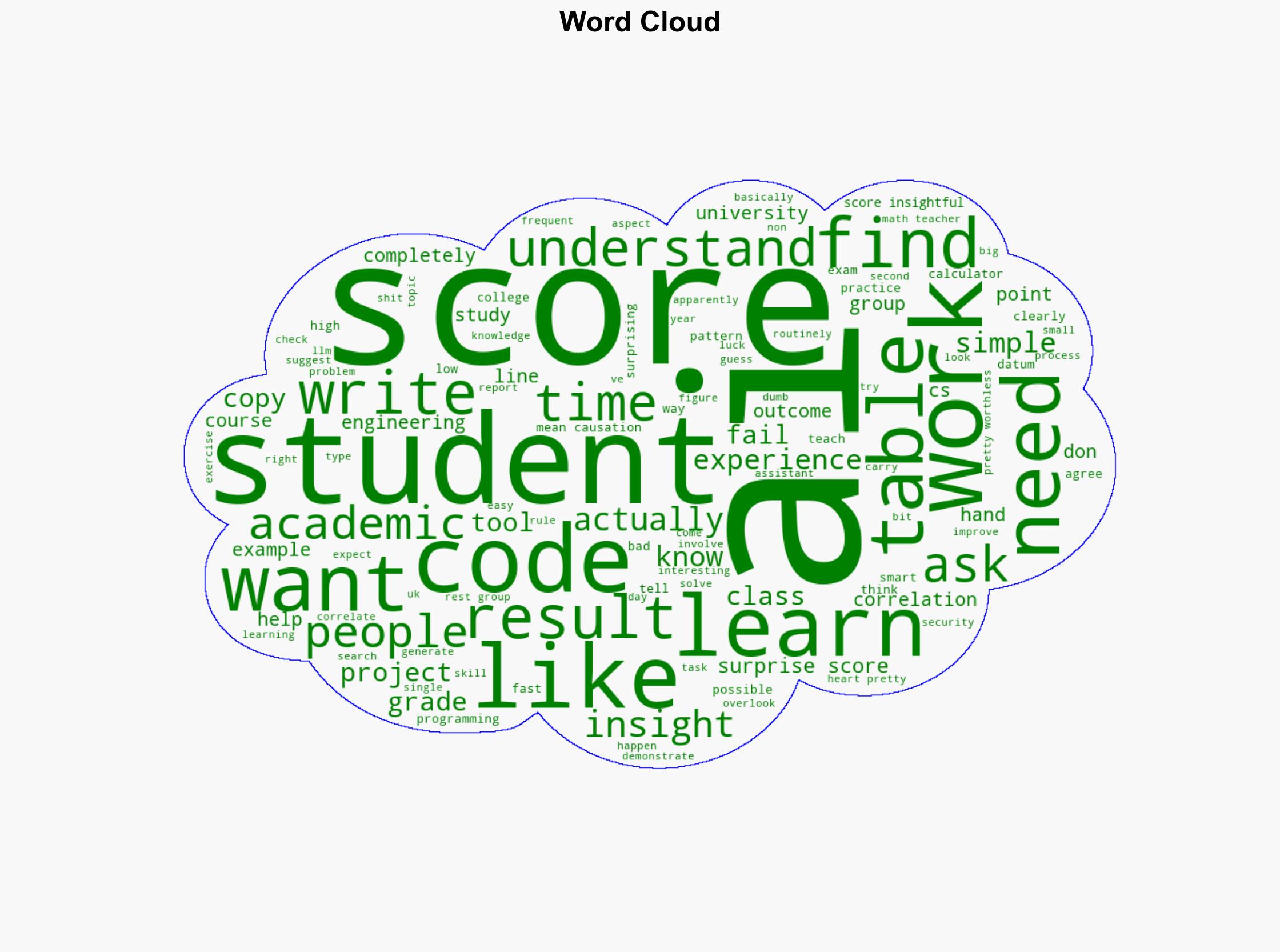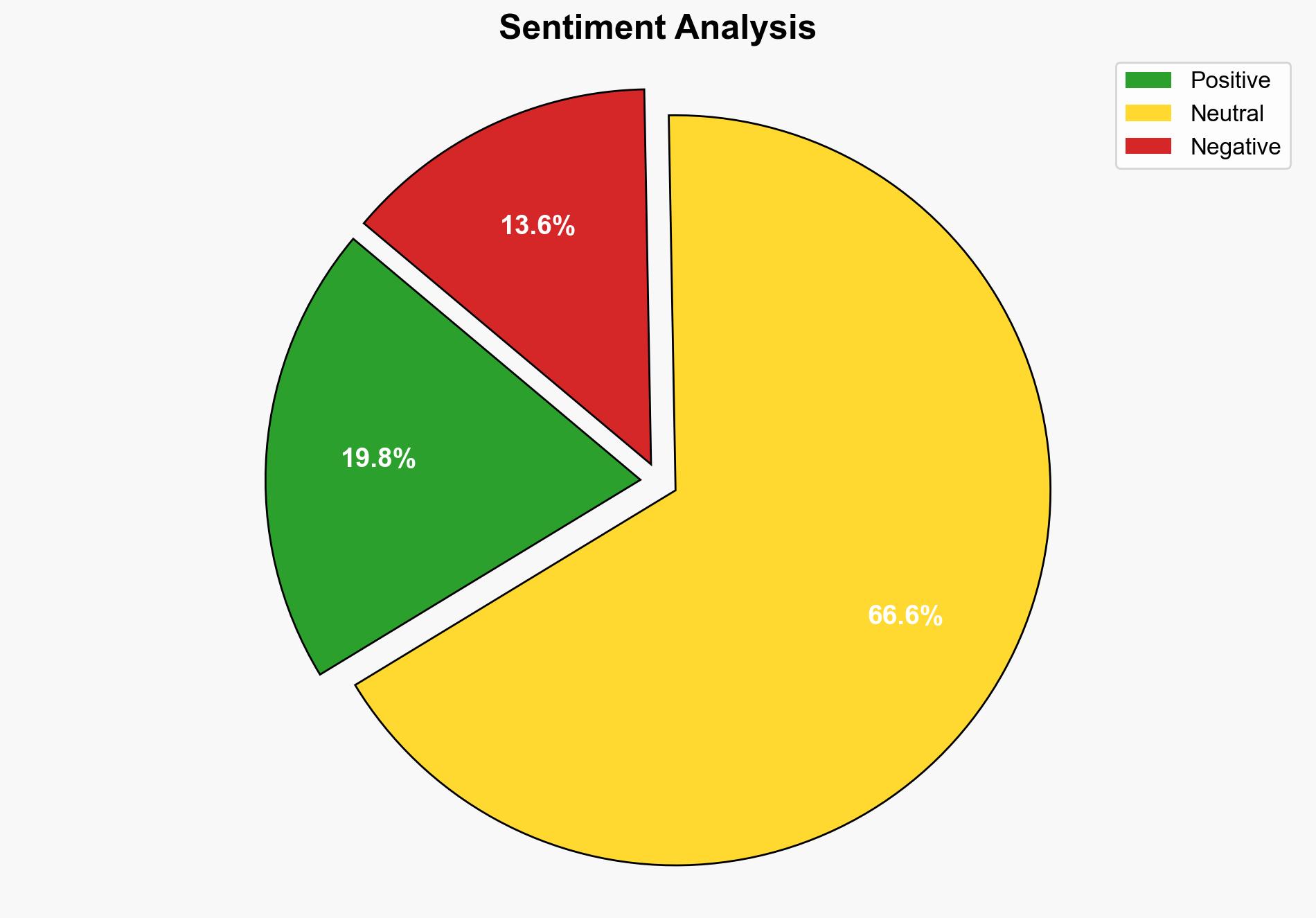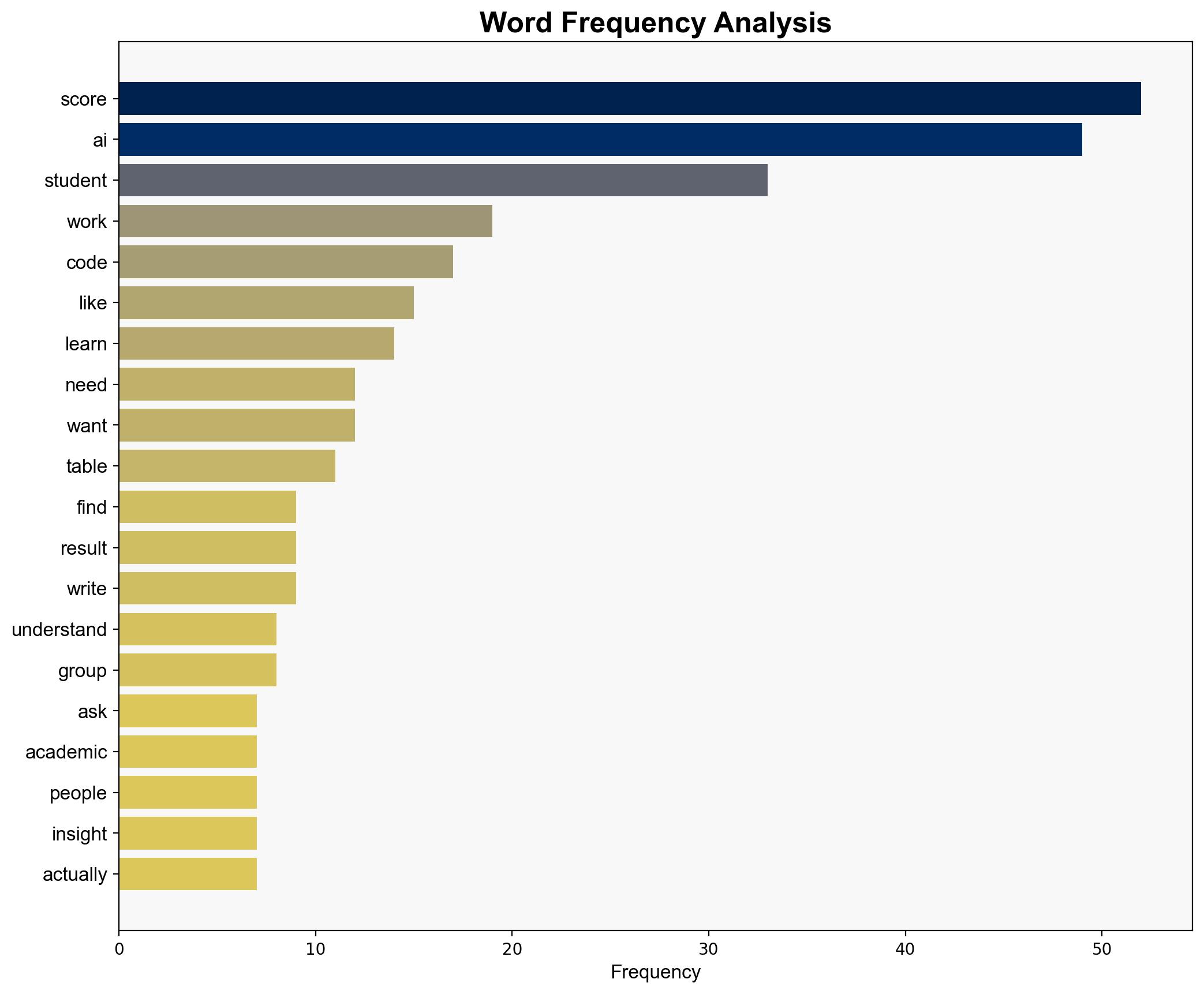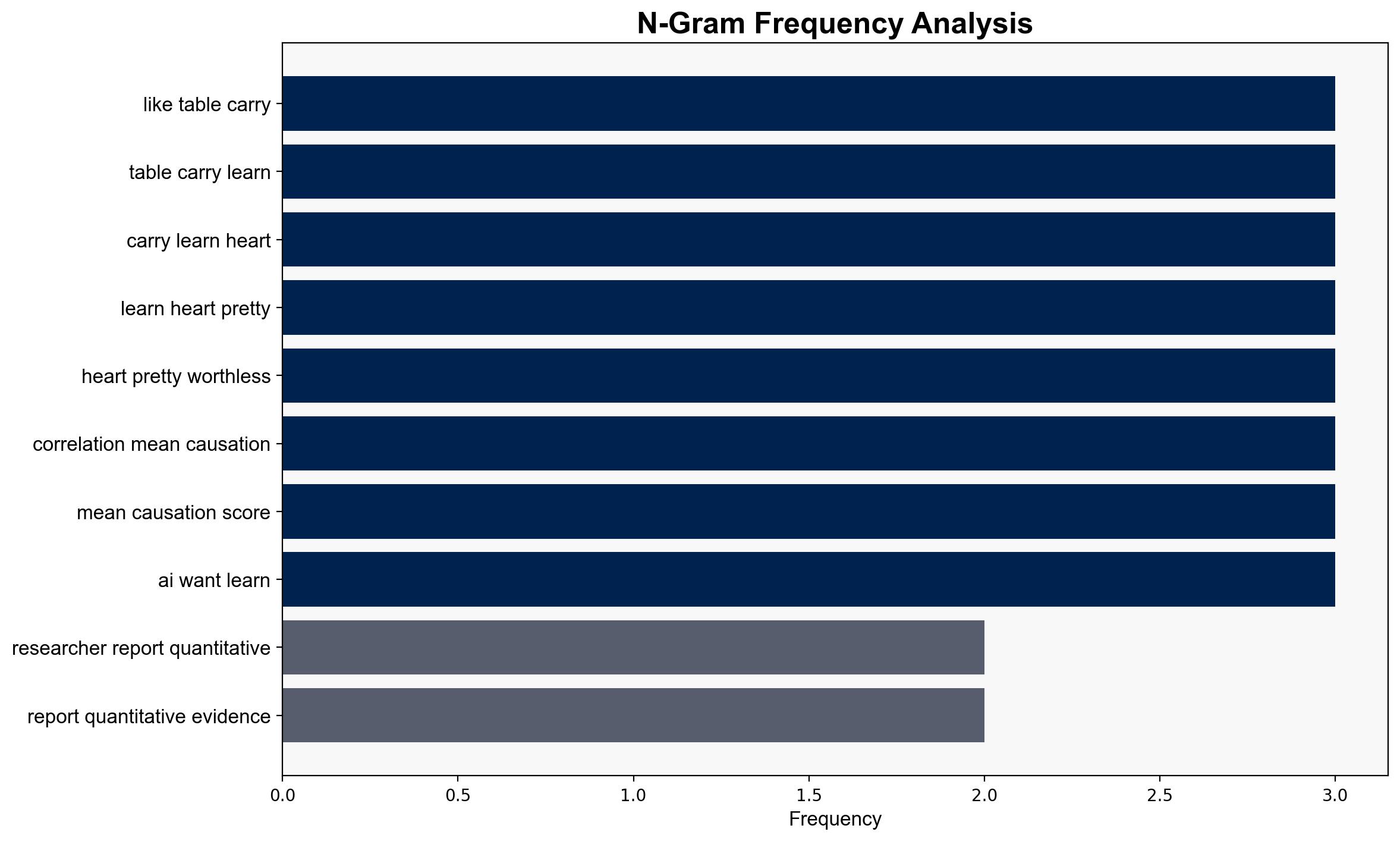AI Tool Usage ‘Correlates Negatively’ With Performance in CS Class Estonian Study Finds – Slashdot.org
Published on: 2025-09-07
Intelligence Report: AI Tool Usage ‘Correlates Negatively’ With Performance in CS Class Estonian Study Finds – Slashdot.org
1. BLUF (Bottom Line Up Front)
The study suggests a negative correlation between AI tool usage and student performance in a computer science class. The most supported hypothesis is that reliance on AI tools without proper guidance hinders learning, leading to poorer academic outcomes. Confidence level: Moderate. Recommended action: Educational institutions should consider integrating structured AI tool usage guidelines and support systems to enhance learning outcomes.
2. Competing Hypotheses
1. **Hypothesis A**: Frequent use of AI tools leads to lower academic performance because students become overly reliant on these tools, which hinders their ability to learn and solve problems independently.
2. **Hypothesis B**: Students who struggle academically are more likely to use AI tools frequently, but the tools themselves are not the cause of poor performance; rather, they are a symptom of existing academic challenges.
Using the Analysis of Competing Hypotheses (ACH) 2.0, Hypothesis A is better supported by the evidence, as the study highlights a negative correlation between AI tool usage and performance, suggesting that reliance on AI without proper guidance may impede learning.
3. Key Assumptions and Red Flags
– **Assumptions**: The study assumes that AI tools are used primarily for problem-solving rather than learning enhancement. It also assumes that all students have equal access to AI tools and similar levels of guidance.
– **Red Flags**: The study does not account for the quality or type of AI tools used, nor does it consider the varying levels of student proficiency with these tools. The potential bias in self-reported data from students is also a concern.
4. Implications and Strategic Risks
– **Educational Implications**: If AI tools are not integrated with proper educational frameworks, they may lead to a decline in critical thinking and problem-solving skills among students.
– **Technological Risks**: Over-reliance on AI tools without understanding their limitations could lead to a workforce ill-prepared for real-world challenges.
– **Psychological Risks**: Students may develop a dependency on AI, reducing their confidence in their own abilities and leading to increased anxiety and academic stress.
5. Recommendations and Outlook
- Educational institutions should develop guidelines for AI tool usage, emphasizing their role as supplementary aids rather than primary problem solvers.
- Implement training programs for students and faculty to effectively integrate AI tools into the learning process.
- Scenario-based Projections:
- Best Case: Structured AI integration leads to enhanced learning outcomes and better-prepared graduates.
- Worst Case: Continued unstructured use of AI tools results in a decline in educational standards and graduate competencies.
- Most Likely: Mixed outcomes with some institutions successfully integrating AI, while others struggle without proper frameworks.
6. Key Individuals and Entities
– University of Tartu
– Associate Professor in Informatics
– Recently graduated master’s students involved in the study
7. Thematic Tags
educational technology, AI integration, student performance, academic outcomes





